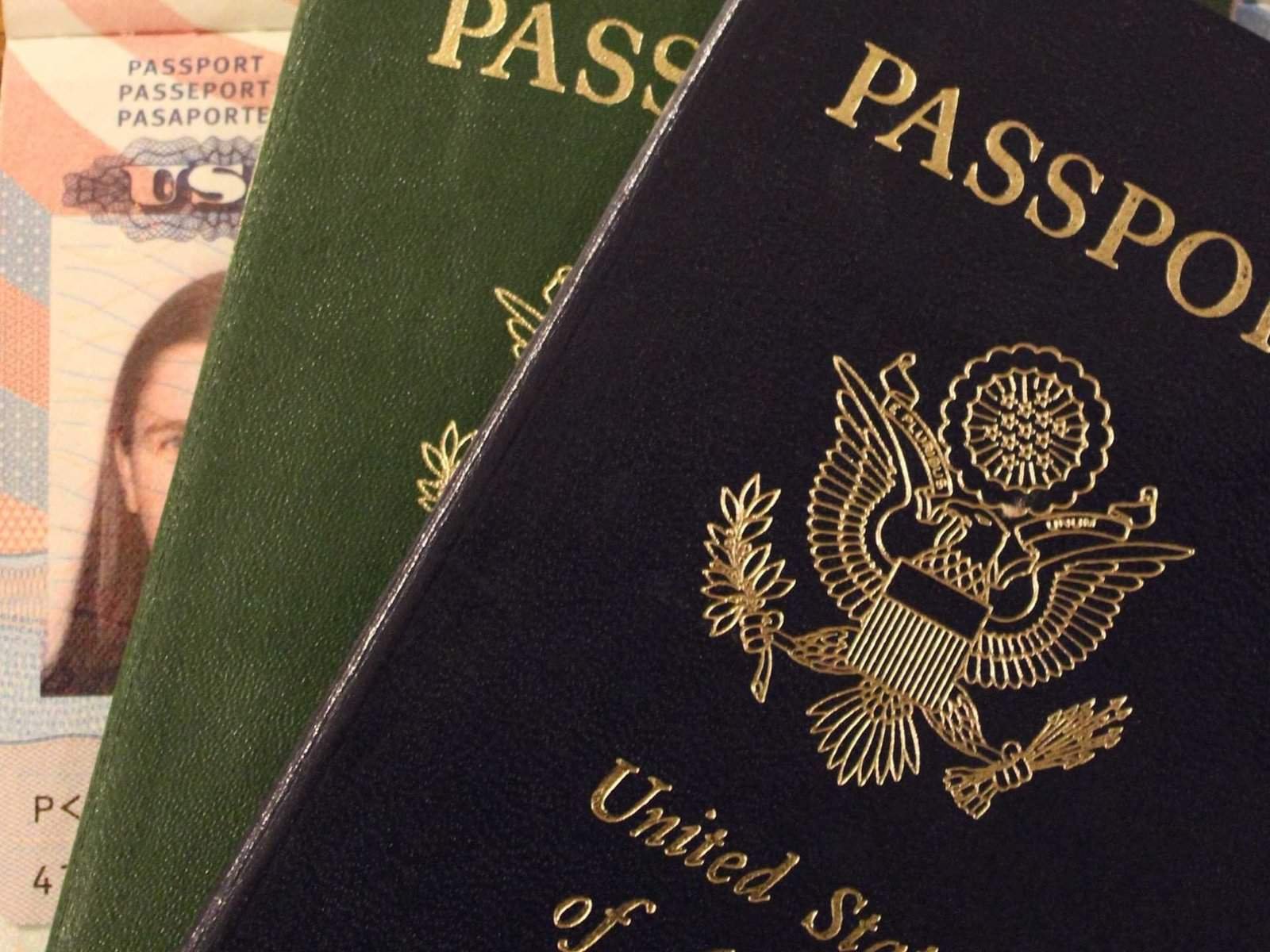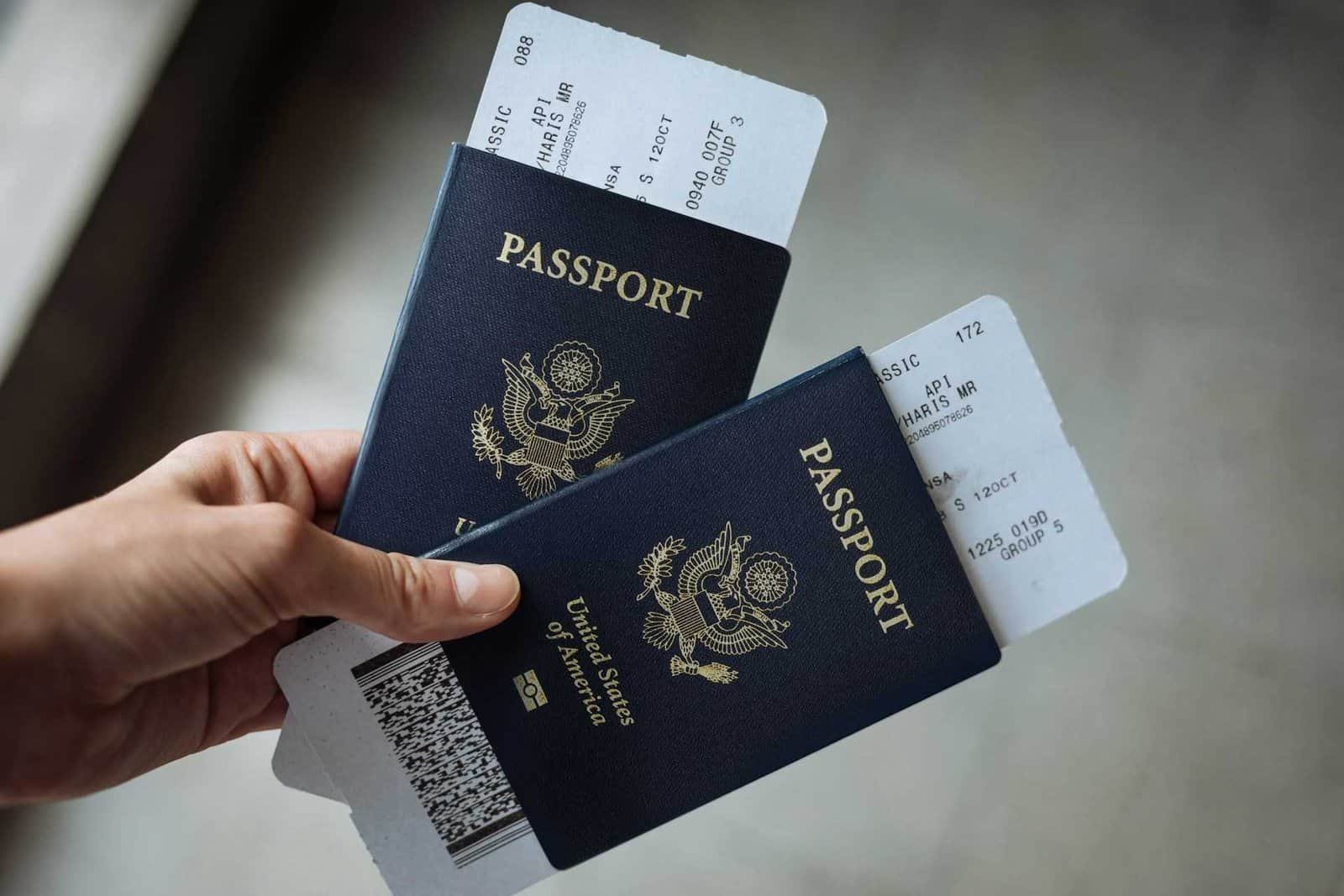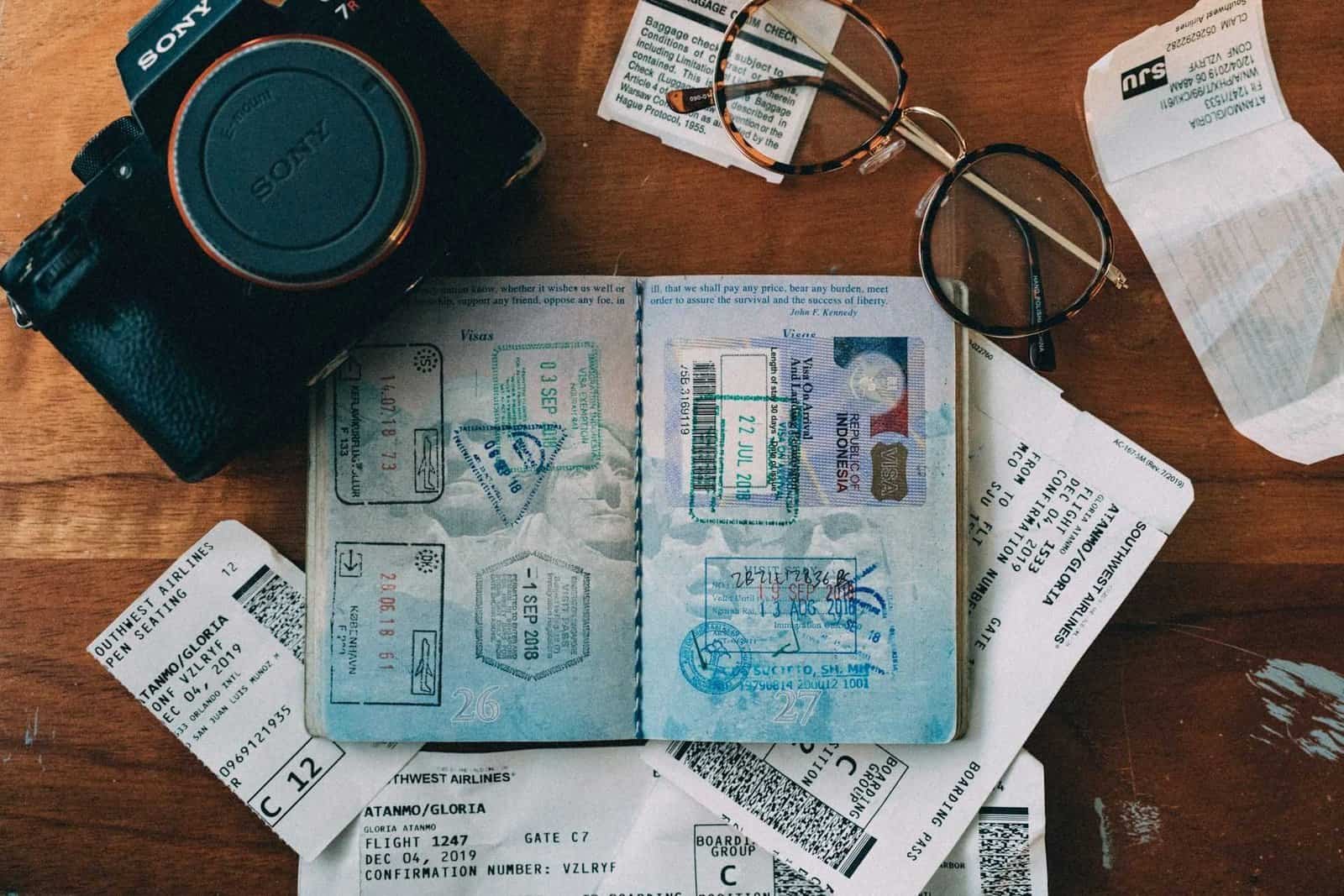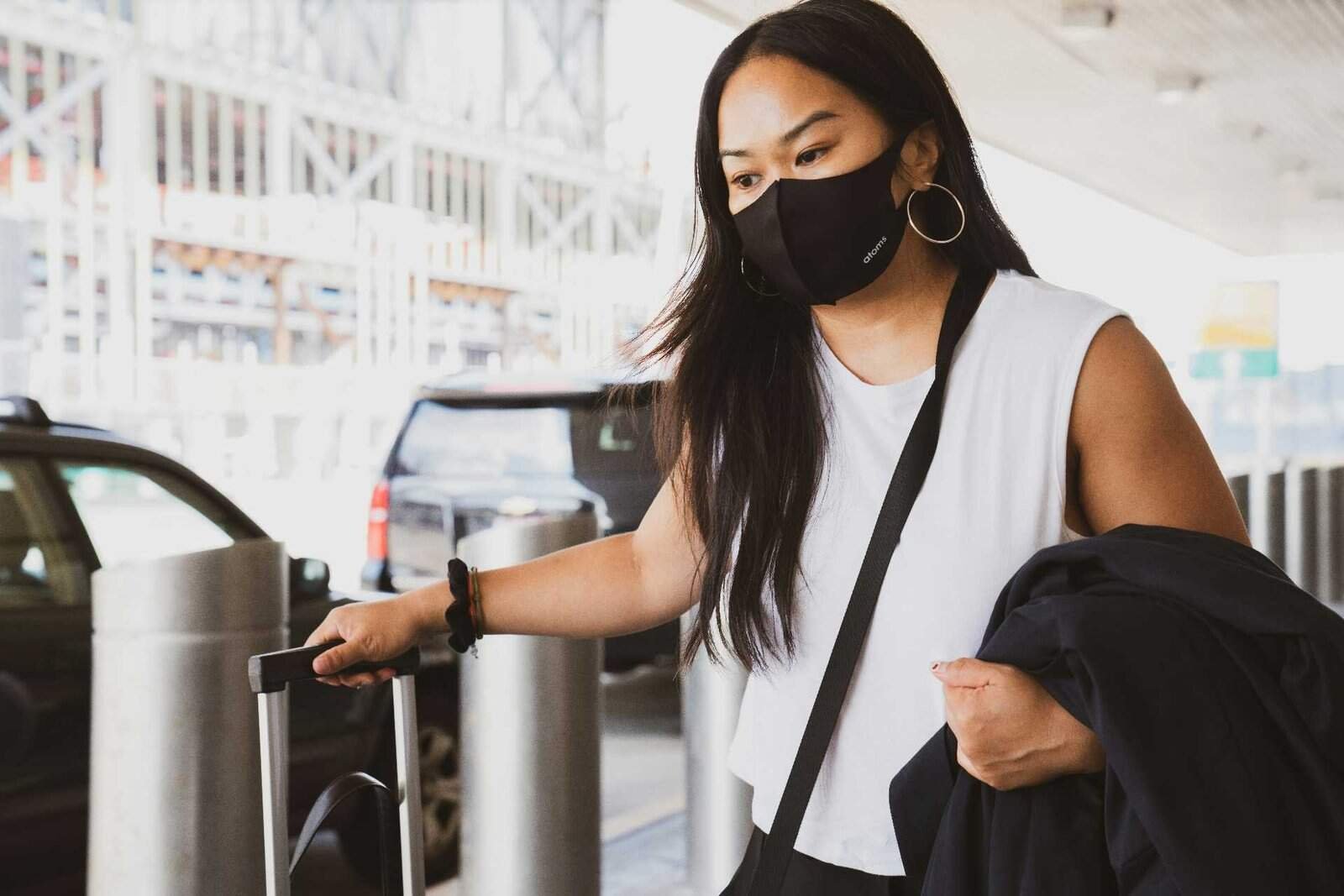This post may contain affiliate links which means we may receive a commission for purchases made through links. We will only recommend products that we have personally used! Learn more on our Disclaimer page.
Your Essential Documents For Stress-Free Travel Guide
Everything You Need To Know

Traveling is an exhilarating experience, yet navigating the complexities of travel documents can often complicate the journey. It is essential to demystify the intricacies of passports, visas, and other vital paperwork to facilitate a seamless travel experience.
I’ve learned that having the right travel documents can make the difference between a smooth journey and a nightmare at customs. Therefore, I’m sharing my hard-earned wisdom on managing your travel documents so you can embark on your journeys with confidence and ease.
Understanding the Basics
Passport: Your Global Identity Card
1. Your passport is your primary travel document, serving as proof of citizenship and granting you entry into foreign countries. It is undoubtedly the most crucial travel document you’ll ever possess. Here are my top tips:
- Validity: Make sure to always check the expiration date. Many countries require your passport to be valid for at least six months beyond your planned return date.
- Store a digital copy of your passport online and securely on your mobile device. Keep a physical copy in a different location from your actual passport.
- Passport Renewal: If you’re a frequent traveler, monitor your passport pages and make sure to apply for a new passport before time runs out.
- A passport cover can help keep your passport safe from damage and everyday use, so consider investing in one.

Visas: Your Permission to Enter
2. A visa is an official document granting permission to enter a specific country depending on your nationality and destination. Here’s what I’ve learned:
- Types of Visas: Tourist, business, student, and work visas are common types.
- Visa Requirements: Many countries require visas for entry. Some countries offer visa-on-arrival, whereas others require applications months ahead of travel. Check the embassy or consulate website of your destination for specific requirements.
- Key Point: Always keep a printed copy of your visa with you, even if you have an e-visa.
- It’s very important to monitor how long your visa is valid and how long you are allowed to stay.
- Another key point is that transit visas might be required even if you’re just connecting through a country. So, be aware.
- Application Process: Visa applications can be complex, as it often requires completing various forms, paying fees, and possibly attending an interview.
- Processing Time: Allow ample time for visa processing, as it may take weeks or even months.

Essential Documents Beyond the Passport
3. While your passport is crucial, savvy travelers know it’s just the beginning. Important documents for smooth international travel include visas for your destinations, proof of onward travel, and current vaccination records.
- ID Cards: A government-issued ID card can be helpful as a secondary form of identification.
- Driver’s License: While not a travel document, it’s essential for renting cars in many countries. In Fact, if you’re planning on driving abroad, it’s often necessary to have your International Driving Permit (IDP). Surely, it’s good to check before a trip in case you need it.
- Travel Insurance: The first thing to remember is protecting your investment with comprehensive travel insurance coverage. It’s imperative to always carry:
-
- A physical copy of your insurance policy
- Emergency contact numbers for your insurance provider
- Any insurance cards you receive from your provider
- Vaccination Records: In the post-COVID world, having vaccination records is more important than ever. Some countries require proof of specific vaccinations.
-
- COVID-19 vaccination certificate
- Certification for Yellow Fever vaccination (essential for traveling to regions in Africa and South America)
- Any additional vaccination records that may be important
- Itinerary and Bookings:
Keep both digital and physical copies of your flight, hotel, and activity bookings.
4. Student and senior cards can offer great discounts on transportation, attractions, and accommodations.


PROOF OF ONWARD TRAVEL
5. Proof of onward travel means that governments and airlines require you to show a return ticket to ensure that you are not planning to stay in their country illegally. To clarify, this could be:
- A return flight ticket
- A bus or train ticket to your next destination
- A fully refundable ticket that you can cancel later if your plans change
Emergency Contact Information
6. Emergency contact information is a critical yet often overlooked aspect of travel preparation. For added safety, consider sharing your itinerary and contact list with a family member or friend not traveling with you. In unforeseen circumstances, from lost luggage to medical emergencies, having this information readily available can significantly reduce stress and expedite assistance. Keep a card in your wallet with emergency contact information, including:
- Home country emergency contact (i.e., family, friends, embassy or consulate)
- Travel insurance emergency number
- Embassy or consulate contacts in countries you’re visiting
Document Organization and Protection
7. Effective document organization and protection are key to stress-free travel. Invest in a dedicated travel document organizer with multiple compartments for passports, visas, tickets, and other essentials. I use a combination of:
- Digital Backups: Scan and save copies of your passport, visas, and other important documents in a secure cloud storage system.
- Physical Copies: Keep paper copies of essential documents in a separate location from the originals. You can use a travel document organizer.
- Travel Wallet: Invest in a travel wallet to securely carry your documents.
- Document Protectors: Use plastic sleeves to protect your documents from damage.
- Make a Checklist: A checklist is equally important and it’s something that I review before every trip.
- Make Copies: Make copies of all your important documents to avoid unnecessary headaches and stress in the future. This is vital, and you will appreciate it later.
Emerging Technologies
8. Stay updated on the latest technologies that can simplify how you manage documents.
- Digital passports are emerging in various countries.
- Blockchain technology is being assessed for its role in enhancing the security and reliability of travel documentation.
Tips for a Stress-Free Document Journey
- Start Early: Begin gathering and organizing your travel documents well in advance.
- Check Entry Requirements: Stay updated on visa and entry requirements for your destination.
- Be Prepared for Changes: Travel plans can change, so be ready to adjust your documents accordingly.
- Seek Professional Help: If you’re overwhelmed, consider using a travel agent or visa service.

Keeping your travel documents in order may seem like a chore but it is vital for your trip. By being organized and ready, you can avoid stress and issues later on. The aim is to spend less time dealing with paperwork and more time enjoying your adventure. By sticking to these tips, you will be ready to handle travel documents and have a smooth journey.






























